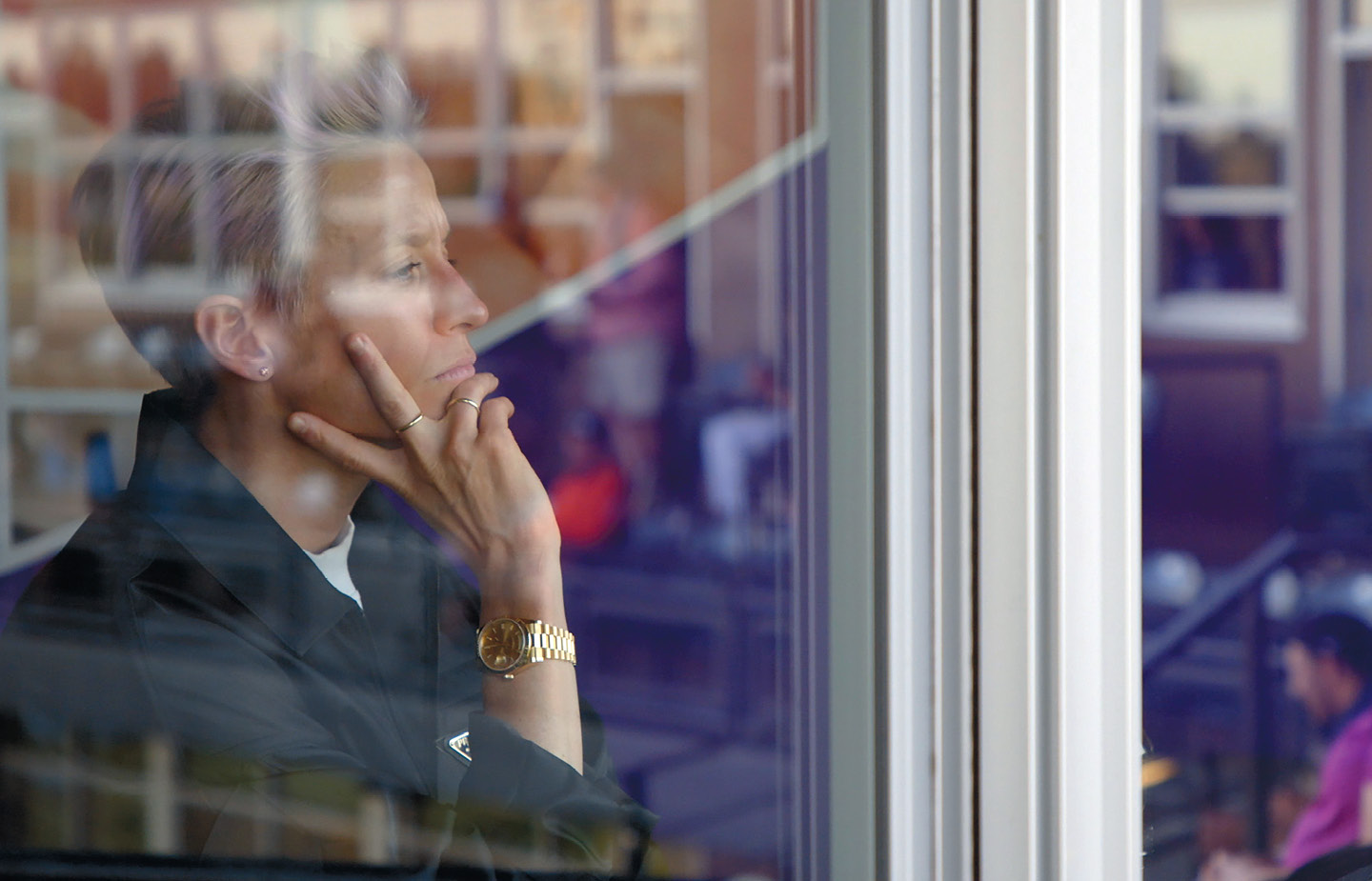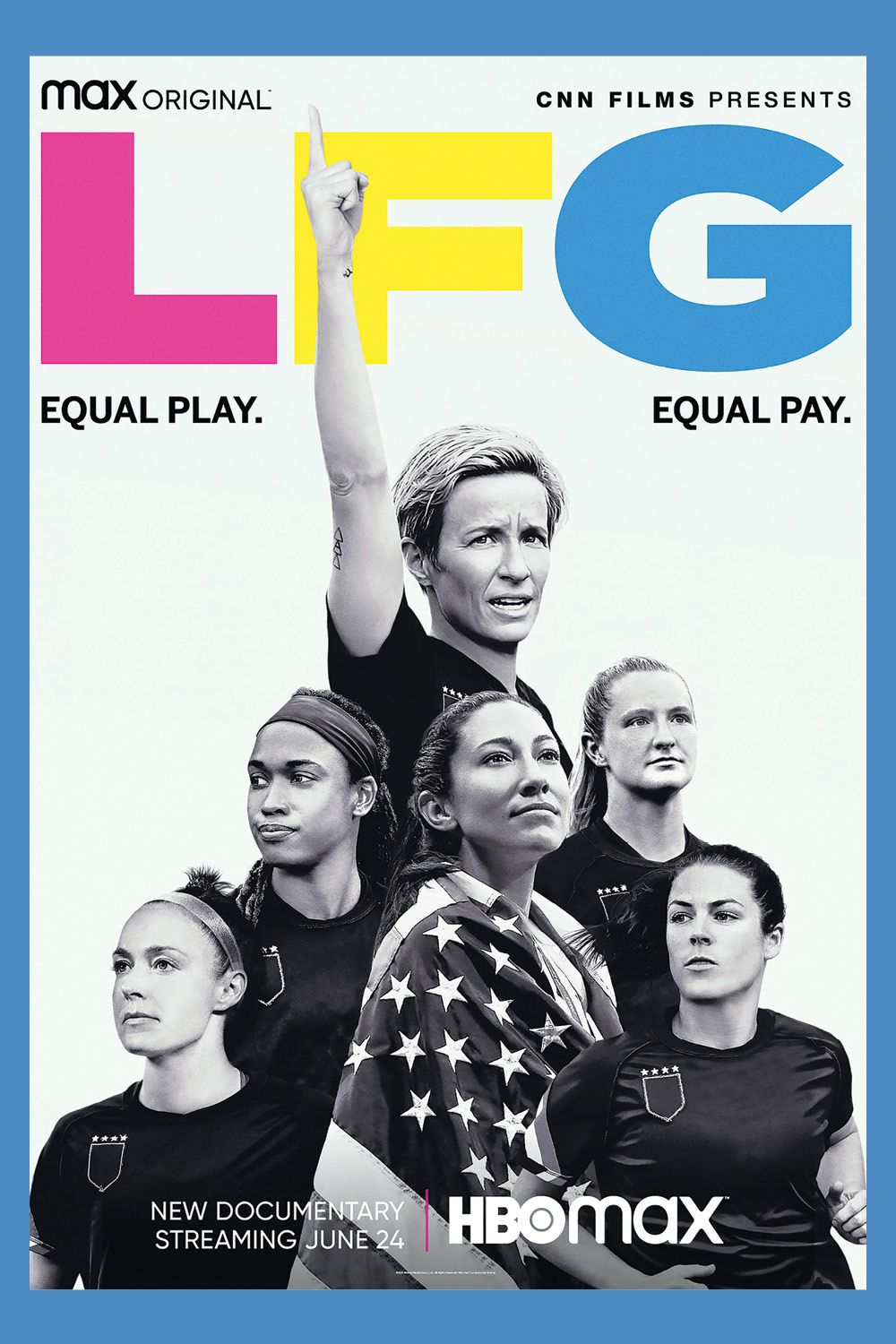LFG
Oscar-winning filmmakers Sean Fine ’96 and Andrea Nix Fine take viewers inside the United States Women’s National Soccer Team’s fight for equal pay.
LFG, now streaming on HBO Max, tells the riveting story of the people at the center of one of the biggest battles for women’s rights in a generation. Connecticut College Magazine sat down with Sean Fine ’96 and his wife, Andrea Nix Fine, the Academy Award-winning directors and producers behind the powerful documentary.
CC Magazine: Just prior to the start of the 2019 FIFA Women’s World Cup, 28 members of the U.S. Women’s National Team held a secret meeting and decided to collectively sue their own employer—the U.S. Soccer Federation—for “institutionalized gender discrimination.” Their demands? Equal pay for equal play. How did you decide this was a story you wanted to tell?
Sean Fine ’96: LFG was the first film from our new company, Change Content. Our mission is to make change with film; we want our films to be tools, and we want those tools to be used to make as much change as possible. And in 2019, a friend of ours came to us and said, “No one seems to be telling this story.” We looked into it, and it’s such an important story. So we made the choice to meet the players and start filming when they got back from the 2019 World Cup, and sort of crossed our fingers that they would win. Which, of course, they did.
CC: You follow six players during the course of the lawsuit—Megan Rapinoe, Jessica McDonald, Becky Sauerbrunn, Kelley O’Hara, Christen Press and Sam Mewis—and you open the film with each of them describing what LFG, the acronym for “Let’s F—ing Go,” means to them. How does that set the tone for the story, and why did you decide to use LFG as the film’s title?
Andrea Nix Fine: It’s such a great way to meet the team and get a sense of their personalities. And I think the title feels instinctively right. As soon as you hear them say it out loud, say it to each other—it’s their battle cry before they step on the field, and it’s such an easy metaphor for how they approach the challenge of the lawsuit. It’s who they are—unapologetic and powerful together.
CC: The players argue that on “every single point,” U.S. Soccer treats men differently than women—the men make more money per game; they get a higher bonus for each win; they make more for qualifying for, advancing in and then winning the World Cup. And then there’s other discrimination, like the men get more training and marketing resources and better fields and accommodations. And that’s despite the fact that the women’s team actually brought in more revenue than the men in the five years before the lawsuit was filed, which you point out in the film.
AF: We wanted to be dead clear on why these women had the right to do this. They’ve earned it, they’ve sacrificed, they’ve done all the work and they are bringing in the proceeds. A common argument is, “Well of course the men are paid more money because they are bringing in more money for U.S. Soccer”—but that is just not true. So part of the film is a celebration of who these women are, but a big part is also using data to show why the lawsuit is justified.
CC: And while this is a story about professional soccer players, there’s a particularly poignant moment in which Megan says, “I think the story is the same everywhere. Whether you’re an executive, whether you are a domestic worker, whether you are a soccer player—women get paid less to do the same job.”
AF: The players knew this fight was about more than just themselves. And I wanted other women to see themselves in the film. So even if you don’t care about the sport, it resonates, like, “Yeah, I’ve felt that, I’ve been there. I’ve felt that dismissiveness, that need to be perfect.” And it’s not just women, but anyone who has been disenfranchised, they can relate to having to do double the work just to be considered worthy. So how does this change? You fight back.
CC: Jessica’s story is particularly powerful, as she’s raising her young son on the sidelines and working multiple jobs, and yet still struggling to make ends meet.



